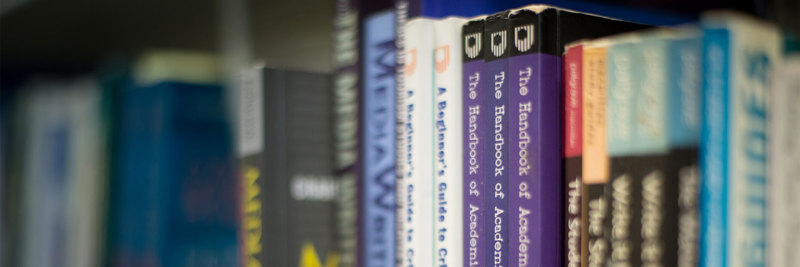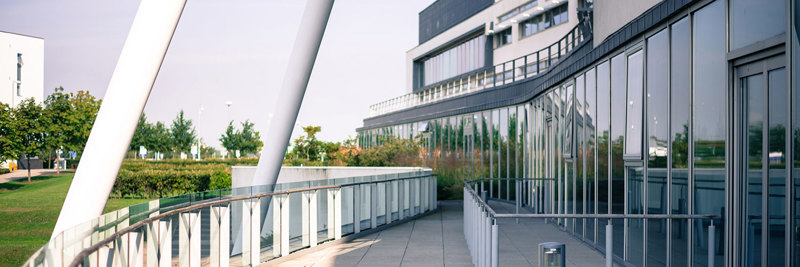Shaking the Archive - Reconsidering the Role of Archives in Contemporary Society
A hybrid, multidisciplinary conference that interrogates the power of and in archives
The event will be in person / Hybrid on the 23rd and 24th June with the last day (25th) being held on-line.
The last decade has seen an exponential rise in scholarly work on archives and preservation.
This 3-day hybrid conference aims to engage with diverse sectors and subject areas to explore how archives can be interrogated, reimagined, and represented.
- Overview
- Programme
- Keynotes
- Accommodation

Hosted at Queen Margaret University in Edinburgh on 23-24 June and online on 25 June 2023, this conference aims to critically appraise the current state of and research on global archives. Alongside the presentations, there will be an exhibition, film screenings, and networking opportunities for those attending in person.
The last decade has seen an exponential rise in scholarly work on archives and preservation. Certainly, the contribution of archival research and practice has brought about individual and sometimes heroic efforts to safeguard the future of a little-known or under-explored history and its ephemera.
This approach is relevant to most disciplines: culture, the arts, healthcare, sociology, and governance expend significant energy on archives, archiving, and safeguarding past objects and knowledges.
Questions around the role(s) of memory and archives in the present challenge sectors to reflect on how we can collectively rethink the (opportunistic) use of these individual and institutional archives.
Physical materials are increasingly pertinent in the face of the ubiquity of our digital world. The questions we want to ask are:
- Where is ‘history’ located if we’re constantly looking to the future?
- How can contemporary communities engage with ‘old’ ephemera?
- What is the role archives play in remembering?
- How do institutions make visible and accessible their archival materials? How can personal, national, and global archives better act as a collective memory?
- What are the gaps in knowledge and how do we deal with unknown histories?
- What practices and methodologies are in place to engage with the vulnerable materialities of and in archives?
- How do we ethically deal with ownership and how do we effectively decolonize archives?
- How do we deal with the embodied memory of the past in the form of living and vulnerable archives?
- What tools would allow us to engage and interact with the polyphonic documentation of archives?
- How can archives better serve the specific communities of which they are the cultural product?
We invite a deeper reflection around elements that are left out of mainstream historiography and expand knowledges beyond the surface of the visible. We effectively want to challenge, deconstruct and expand the power dynamics inherent to general or institutional knowledge.

DAY ONE | FRIDAY 23 JUNE
| 09.00 | ARRIVAL & REGISTRATION Morning refreshments & pastries will be served on the third floor |
|
| 09.30 - 10.00 | Room: Halle (3148) WELCOME Professor Richard Butt |
|
| 10.00 - 11.30 |
Room: Halle (3148) |
|
| 11.30 - 13.00 |
PANEL SESSIONS | |
|
Room: Halle (3148) Archives and Social Practice 1
|
Room: 3106 Oor Mad History |
|
| 13.00 - 14.00 |
LUNCH |
|
|
14.00 |
PANEL SESSIONS | |
|
|
Room: 3106
|
|
| 15.30 - 16.00 | COMFORT BREAK Tea, coffee & shortbread will be available on the third floor atrium |
|
16.00 - 17.30 |
PANEL SESSIONS | |
|
Room: Halle (3148)
|
Room: 3106
|
|
| 17.30 - 18.30 |
DRINKS RECEPTION |
|
DAY TWO | SATURDAY 24 JUNE
| 09.30 | ARRIVAL & REGISTRATION Morning refreshments & breakfast bowls will be served on the third floor |
|
| 10.00 - 11.30 |
PANEL SESSIONS | |
|
Room: Halle (3148) Archives and Social Practice 2
|
Room: 3106 Materiality and Immateriality
|
|
|
11.30 |
Room: Halle (3148)
|
Room: 3106
|
| 13.00 - 14.00 | LUNCH Lunch will be served in 1875, which is the canteen area located on the ground floor |
|
| 14.00 - 15.30 |
PANEL SESSIONS | |
|
Room: Halle (3148)
|
Room: 3106
|
|
| 15.30 - 16.00 |
COMFORT BREAK |
|
| 16.00 - 17.30 |
PANEL SESSIONS | |
|
Room: Halle (3148)
|
Room: 3106
|
|
|
17.30 |
FILM SCREENING |
|
DAY THREE | SUNDAY 25 JUNE (ONLINE ONLY)
| 10.00 - 11.30 |
PANEL SESSIONS | |
|
Digital Archives
|
Curation and exhibition (8B), CHAIR: Anthony Schrag
|
|
| 11.30 - 11.45 | COMFORT BREAK | |
| 11.45 - 13.15 |
PANEL SESSIONS | |
|
Challenging the Archives and Fabulating Life Stories and Trajectories
|
Resistance, Power & Activism
|
|
| 13.15 - 14.00 | LUNCH | |
| 14.00 - 15.30 | KEYNOTE | Abigail De Kosnick Archiving, Librarianship, and the Individualization of Media Infrastructure Chair: Rebecca Finkel |
|
Playing With Fire: The Limitations, Fears, Politics and Fun of Working with Complex Heritage Collections
Helen Fothergill
Service Manager – Archives, Gallery & Museums, Aberdeen Art Gallery
Having worked with museum, art gallery and archive collections for 30 years, Helen has seen collections grow and new methods of managing and interpreting these objects emerge, but the very reason we hold them or what they say about us as a nation, society or collecting institution has been challenged – and rightly so. In this keynote, Helen engages with quandaries around how to face the practical challenges these wonderful, historic, often controversial and sometimes down-right offensive objects present us with.
John Maynard Keynes said: “Ideas shape the course of history” but perhaps we have to pay closer attention to a quote attributed to Winston Churchill “History is written by the victors.” For those dealing with historic collections, we face a legacy of well-to-do, middle-aged, white-male dominated selections. How can we reinterpret these amassed artefacts in a more inclusive way? Sometimes it feels impossible. We are also faced with the challenge of why they were collected. What were they intended to “do” for the visiting public: “improve”, “educate”, or subtly “indoctrinate”? Add to that the way in which objects are described. What is sacrosanct and immutable? What are we as a “woke” workforce allowed to challenge? Are we robbing the objects of meaning, hiding controversial histories, or simply removing terminology that is no longer appropriate or required?
Whilst we won’t answer any of these challenges quickly or easily, as museum and archive professionals we are in a unique position to make considered changes to rebalance this historic legacy and include a broader narrative with multiple voices. Other challenges might get in the way – politics, what to collect now, tightening budgets, increased expectations, digital-born collections, limited space – but with consistent actions we can, perhaps, move mountains.
Archiving, Librarianship, and the Individualization of Media Infrastructure
Abigail De Kosnik
Associate Professor, Berkeley Center for New Media and Department of Theater, Dance & Performance Studies
In the U.S., anti-piracy efforts became famous and notorious between 2003 and 2010, when the RIAA threatened to sue tens of thousands of individual users for large sums of money for alleged violations of copyright, and, in most cases, received settlements in the low thousands of dollars. I will argue that this period of what Joe Karaganis calls the “mass-lawsuit strategy” being applied by media corporations to solo consumers signalled a new era in the history of copy culture and copyright culture, when one end user carries as much responsibility for the profitability and legality of an entire media circulation system as the multinational corporations that produce and distribute media goods.
This era, in which media infrastructure has been individualized, continues to the present day. I will present cases of individual founders of digital archives and libraries (Brewster Kahle of the Internet Archive and Alexandra Elbakyan of Sci-Hub) being characterized as pirates and legally targeted by the media industries. I will also describe cases of individual anti-pirates taking it upon themselves to enforce copyright via social media “call-outs” of what they perceive to be pirate practices and organizations. I will trace the origin of this tendency of individuals to shoulder (or to be perceived as shouldering) the weight of massive archiving and library projects to Reagan-era dismantling of government support for infrastructure. I will cite oral history interviewees who spoke of their individual histories of pirate archiving and librarianship, and illustrate how contemporary media pirates build and maintain rogue archives and libraries in ways that that are monadic but also collective, performing a new style of infrastructural labour.
QMU On Campus Accommodation – available 22, 23 & 24 June 2023
For delegates wishing to be a convenient 2 minute walk from the conference venue we would recommend you stay on site at Queen Margaret University where campus accommodation is available.
We have single, en-suite rooms (with shared kitchen and living space) available at £66 B&B per person per night.
Accommodation Booking Form
Conferences and Events Enquiries
If you have an Event/Conference enquiry, one of our team will contact you as soon as possible.
We aim to respond to all enquiries within one full working day of receipt.
Show ContactsEvent Details
In-person attendance (employed): £50*
In-person attendance (student): £30*
In-person attendance (unemployed): £15*
Online attendance (employed): £25
Online attendance (student) £10
Online attendance (unemployed): £5



